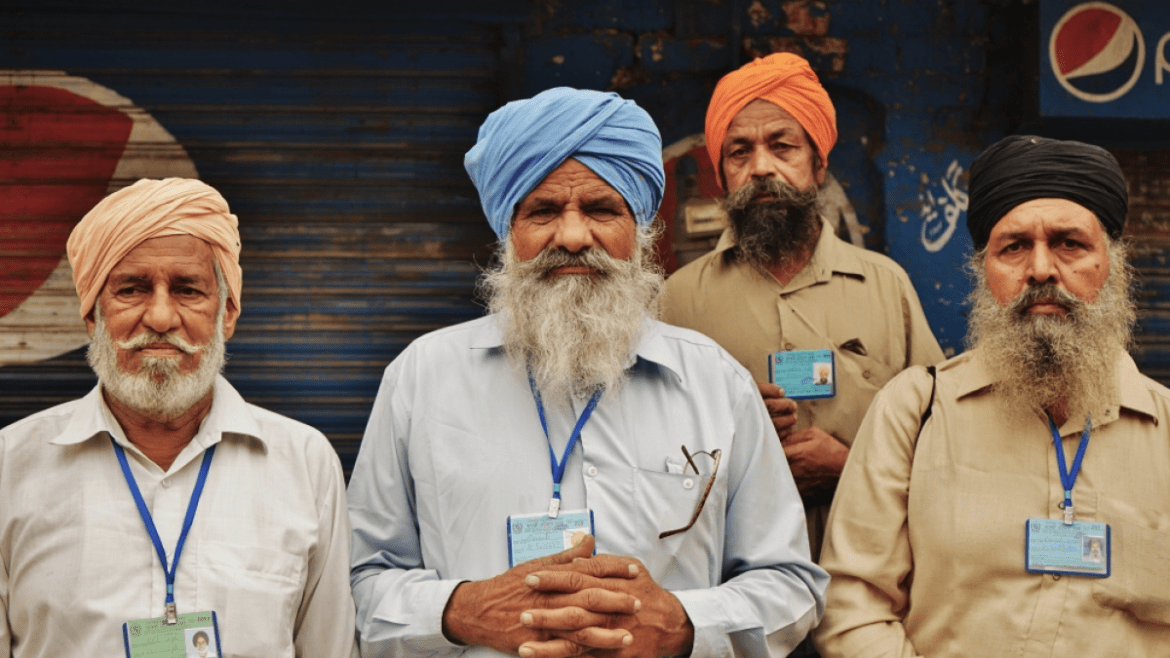AI Generated Summary
- The dichotomy between the thriving Sikh community in India and the beleaguered Sikhs in Pakistan is a poignant reminder of the challenges faced by religious minorities in the region.
- The division of Punjab into eastern and western parts saw the eastern half remain in India and the western half go to Pakistan, with Sikhs suffering immensely as they were forced to migrate en masse to India, leaving behind their ancestral homes and lands.
- As we reflect on the resilience and spirit of the Sikh community, let us also strive for a future where all individuals, regardless of their faith, can live with dignity and security.
The Sikh community, renowned for its indomitable spirit and zest for life, has a rich history marred by one of the most traumatic events of the 20th century: the partition of India in 1947. This seismic event led to the displacement of millions, uprooting countless lives and leaving an indelible mark on the Sikh populace. The division of Punjab into eastern and western parts saw the eastern half remain in India and the western half go to Pakistan, with Sikhs suffering immensely as they were forced to migrate en masse to India, leaving behind their ancestral homes and lands.
Despite this brutal historical episode, often referred to as “the bloody battlefield of partition,” the cultural and spiritual essence of Punjab persisted, especially in India. Today, Sikhs in India have flourished, making significant strides in various fields such as business, politics, sports, and entertainment. They constitute around 2% of India’s population and are celebrated for their bravery, enterprise, and contributions across multiple domains.
Prominent Indian Sikhs like Gyani Zail Singh, who served as the President of India from 1982 to 1987, and Manmohan Singh, the Prime Minister from 2004 to 2014, exemplify the heights of political achievement. The legendary athlete Milkha Singh, also known as “the Flying Sikh,” musical maestros like Jagjit Singh and Daler Mehndi, and Onkar Singh, the founder of Avon Cycles, and more recently Ajay Banga, President of the World Bank are just a few notable names that reflect the community’s widespread success.
Sikh institutions in India, such as the Harminder Sahib (Golden Temple) and numerous Gurudwaras, along with charitable organizations, have thrived and continue to contribute significantly to society. The Indian state’s promotion of peaceful coexistence and respect for Sikh contributions has fostered an environment where the community can prosper.
In stark contrast, the plight of Sikhs in Pakistan paints a grim picture. Following partition, the Sikh population in Pakistan’s Punjab has dwindled dramatically, from lakhs to merely a few thousand today. This decline is attributed to migration, forced conversions, and targeted violence. Incidents of brutality began as early as August 1947, with massacres in Sheikhupura, Gujranwala, and Montgomery, leaving a trail of devastation.
The persecution of Sikhs in Pakistan continues unabated. In 2018, a suicide bomber attacked a convoy of Sikh pilgrims in Peshawar, resulting in 19 deaths. Similarly, the 2020 attack on the Nankana Sahib Gurudwara by a fanatic mob further exemplifies the hostilities faced by Sikhs. These incidents underscore the broader issues of religious freedom and minority rights in Pakistan, where blasphemy laws and forced conversions are rampant, as reported by the United States Commission on International Religious Freedom (USCIRF).
The dichotomy between the thriving Sikh community in India and the beleaguered Sikhs in Pakistan is a poignant reminder of the challenges faced by religious minorities in the region. While Indian Sikhs have found a supportive environment that allows them to excel, their counterparts in Pakistan grapple with disillusionment and a constant threat to their existence.
The contrasting fates of Sikhs on either side of the Indo-Pak border highlight the broader narrative of religious freedom and minority rights in South Asia. It is imperative for the international community to recognize and address these disparities, advocating for the protection and upliftment of marginalized groups. As we reflect on the resilience and spirit of the Sikh community, let us also strive for a future where all individuals, regardless of their faith, can live with dignity and security.
The opinions expressed in this article are those of the author. They do not purport to reflect the opinions or views of Khalsa Vox or its members.




